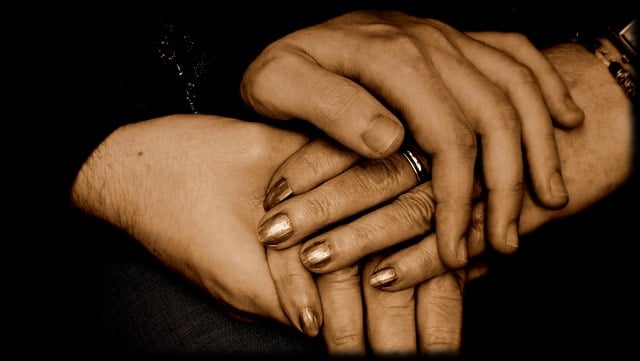
by ThinkSayBe | Dec 18, 2015 | 2015, Awareness, Being Considerate, Human Rights, Humanity, Independence, North America, Prejudice, Refugees, Relocating, Social Equality, ThinkSayBe, USA, World Motherhood

On November 26, 2015, here in the USA there was a celebration. It is called Thanksgiving. Thanksgiving is celebrated by many Americans as a day when the ‘Injuns and pilgrims feasted together in harmony’. When possible, families gather to spend the day eating a plenteously-sized meal, and go over the things for which they are thankful.
When I came to the U.S. I heard of a couple of stories behind the meaning of Thanksgiving. I heard it marked a day in American history when pilgrims came from England and after having being helped to plant food by some Natives, they all gathered and had a big feast with the first harvest. I was also told that there was an exchange in which the Natives gave the English food like wild game, and the English gave the Natives blankets contaminated with smallpox which wiped out almost an entire First Nation. So it is that without researching further, I knew I didn’t want to celebrate this particular thanksgiving day without looking into its history first. I was okay with my family gathering, eating good food, and giving thanks for all that I had. I just wasn’t about giving thanks for the planned killing of anyone.
During the course of my life I have figured out that I am too idealistic. I am also fairly optimistic, so saying that I am ‘too’ idealistic feels wrong. However, as life has proven, I am too much of an idealist. That’s okay; I am still staying true to that for I am sure there is purpose in it, and I am rewiring some other thinking patterns. All this to say, that by the time I heard of the smallpox story, I knew there was a great chance that this had actually happened. The idealist in me immediately asked why any human would cause suffering and death to his fellow, but Sophia the realist started going down a list of atrocities that she knew about, that would make this new information less shocking.
The research I did before was in books I do not recollect the titles of. I presently did some more research, though, and I came across a story that an educator put together so the truth about the First Thanksgiving day may be shared with elementary school-aged children. With this story there were books cited and more information given in a more graphic manner than that written for young children.
I read the article and I leave it to you to read it as well. As I scrolled down and read more, I read the following paragraph and immediately I thought about the current situation in Syria, its people who are fleeing war seeking refuge amongst other human beings, and how many of said other humans are responding to this need. This paragraph reminds us of the history of U.S. Americans’ Anglo-Saxon ancestors, and so it is ironic that any of their descendants should feel okay saying Syrian refugees aren’t welcome to this land.
“….The Puritan “Pilgrims” who came to New England were not simply refugees who decided to “put their fate in God’s hands” in the “empty wilderness” of North America, as a generation of Hollywood movies taught us. In any culture at any time, settlers on a frontier are most often outcasts and fugitives who, in some way or other, do not fit into the mainstream of their society. This is not to imply that people who settle on frontiers have no redeeming qualities such as bravery, etc., but that the images of nobility that we associate with the Puritans are at least in part the good “P.R.” efforts of later writers who have romanticized them.(1) It is also very plausible that this unnaturally noble image of the Puritans is all wrapped up with the mythology of “Noble Civilization” vs. “Savagery….” Chuck Larsen quoting Berkhofer, Jr., R.F., “The White Man’s Indian”.
ΔΔΔ
We were driving by downtown the other day (what city is irrelevant) and saw people standing by the side of the road with signs reading ‘Refugees are not welcome here’. Immediately my mind rewound to when outcasts from England came here, and it is their descendants who are now standing on the side of the street saying they don’t want refugees here. These current refugees aren’t even outcasts, they are simply people who are no longer safe in the country they know as home. I say this very simply because I cannot pretend to understand what Syrians and all people in the middle of war zones are going through. Many Americans can afford to feel so detached because the war isn’t on American soil. However, we are at war, and the side of war we do not see here, is the side where there are humans who are suffering and dying. It’s easy to not put ourselves in other people’s shoes when we don’t see or know what they are going through. To feel anything but heartbreak or anger when seeing footage of women, children, and men being carried…body parts dangling, faces torn…. of children’s bodies washing up on shore or lined up with other dead children’s bodies… to know that there are humans who feel something other than heartbreak or anger, and who instead feel good as if these ‘strange people from a foreign country’ deserve it, is heartbreaking! It’s the kind of thing that makes me ashamed of being human. We have become so accustomed to these imaginary lines dividing our world, that we believe they are actually real. Otherwise, how could we feel anything but compassion for a father trying to find refuge for his remaining family?
I know I think too ideally. I know this. And I also know that because of this I tend to leave challenging questions and conversations alone. Truth is, though, that as a person I am hurt every time I see a sign/banner, a meme, or other social media image, saying something negative about a refugee. It’s like there is no compassion and history is forgotten. Actually… history isn’t forgotten. History is re-written; which is why the truth about Thanksgiving is not told in schools. It is changed a little, and changed a little more, until it is just the nice Pilgrims and the Indians who were sharing a nice harvest feast. This is why people forget where they came from, and this is part of the reason why when it comes to deciding whether or not we would welcome a refugee into our city or country, we feel comfortable and proud in saying “No, refugees are not welcome here!”
Ultimately my point is this: We are human. All of us. Chinese, Kenyan, Norwegian, Sioux, Japanese, Syrian, Mexican, Goan, etc… etc… etc…
We are all… human. How dare we not extend our hand in support of our fellow human in need?
Let’s not forget where we have come from, and let’s work together to build a better humanity. For those of us feeling a bit more self-assisting than altruistic (for whatever the reason), it may be good to remember that helping another person makes us feel good inside. If we were to die the moment after helping another living thing (human or otherwise), maybe our sincere moment of kindness would redeem us from other times when we weren’t so kind. Thus it is that extending our hand to someone in need is a win-win.
Hopefully, if there ever comes a time when we need help, someone will reach out and say “Come, you are welcome here.”
Are you and idealist or a realist? How do you feel it affects how you think about world issues?
Photo credit to
Rakel Sánchez. This photo has a creative commons attribute license.
I am a mom amongst some other titles life has fortunately given me. I love photography & the reward of someone being really happy about a photo I took of her/him. I work, I study, I try to pay attention to life. I like writing. I don't understand many things...especially why humans treat each other & other living & inanimate things so vilely sometimes. I like to be an idealist, but when most fails, I do my best to not be a pessimist: Life itself is entirely too beautiful, amazing & inspiring to forget that it is!
More Posts
Follow Me:


by Alison Fraser | Dec 1, 2015 | 2015, Awareness, Being Considerate, Canada, Caring, Family, Global Citizenship, Global Goals, Happiness, Holiday, Humanitarian, Philanthropy, Social Good, World Voice
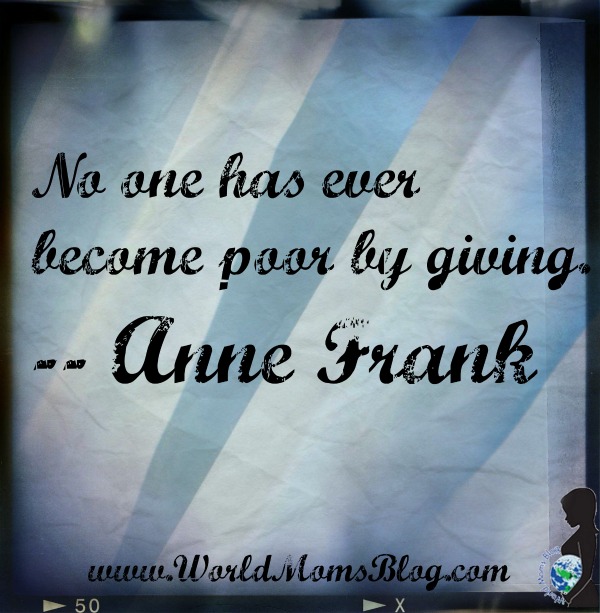
Typically, after Thanksgiving in the United States, the following Friday and Monday, known as Black Friday and Cyber Monday, kick off the holiday shopping season. Black Friday, in the stores and Cyber Monday, online. However, Giving Tuesday follows and is what now kicks off the holiday “Giving Season.” This movement has been around for several years already.
With so much poverty around the world, the fact that a movement, based entirely on the giving of time and money, is gaining momentum gives me great hope. Did you know that you do not just have to give money on Giving Tuesday? You can, instead, donate your time. This means many more of us can get involved.
How great is a movement that the whole world can participate in as a collective unit with one goal in mind: to give?
So take today to think about the something you want to change most in the world. And give. Give of your money. Give of your time. Give only what you can. From around the world to your local community, find out how you can participate today, Tuesday, December 1st.
As each year of Giving Tuesday goes by, more and more organizations are getting involved, which plays at my heart strings. For example, here, in Canada this is the first year that Waterloo Region in Canada will be launching Giving Tuesday in an official manner. The community is rallying around local groups and causes in a way that I would never have imagined!
Let’s kick off the giving season and make this the most memorable Giving Tuesday the world has known to date.
A Note From our Founder:
Today, World Moms Blog asks our readers to consider volunteering, donating and/or advocating for these 4 organizations that have been created by our contributors or employ them. Click on over to see why they are worthy of your #GivingTuesday love!
- Mom2Mom Africa helps to educate and provide a better life for children in Tanzania. What started as a penpal project of a mom in Canada, turned into an education sponsorship program, a school being built, class trips provided and much more!
- Cleanbirth.org, which helps to provide a safer birth experience for mothers in Laos through clean birth kits and nurse midwife training. Started by an American mom who pledged to single-handedly take on poor maternal health statistics.
- The Advocates for Human Rights is the workplace of our resident contributor and human rights lawyer. The organization provides opportunities to volunteer, donate and/or advocate for their life saving and life changing work to help people worldwide.
- Edesia makes Plumpy’Nut which helps provide nutrition for children who need it most in the developing world. And did you know that our Managing Editor works there in digital media?
Tell us what you’re doing for Giving Tuesday…
This is an original post to World Moms Blog by contributor, Alison Fraser, in Canada.
Alison Fraser is the mother of three young girls ranging in age from 5 to 9 years old. She lives with her family in Cambridge, Ontario, Canada. Alison works as an Environmental Toxicologist with a human environment consulting company and is an active member of the Society of Environmental Toxicology and Chemistry (SETAC). She is also the founder and director of the Canadian Not for Profit Organization, Mom2Mom Africa, which serves to fund the school fees of children and young women in rural Tanzania. Recently recognized and awarded a "Women of Waterloo Region" award, Alison is very involved in charitable events within her community including Christmas Toy and School Backpack Drives for the local foodbank.
More Posts - Website
Follow Me:



by Ann Marie Wraight | Nov 30, 2015 | 2015, Advice, Awareness, Being Considerate, Being Thankful, Caring, Childhood, Death and Dying, Europe, Gratefulness, Greece, Grief, Identity, Life, Life Lesson, Memories, Motherhood, Parenting, Relationships, Responsibility, Tragedy, World Motherhood, Younger Children
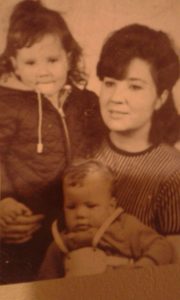
The last photo of the author and her brother with their mom.
There once was a little girl who lost her mother. She was too young to fully understand the concept of never. She had a secret belief that people were making a silly mistake when they gently explained that her mommy would never be coming home again.
The little girl secretly believed her mommy had just taken a long vacation. Her Daddy told her that Mommy was in a special type of hospital for people who were sick and needed to rest.
Since the little girl was smart and precocious, she imagined her mother had taken a much needed rest and gone on holiday with the traveling circus, which recently had been in town. Hadn’t Mommy admired the clowns and acrobats SO much? Wouldn’t this be a great way to get better after all the medicine the little girl had secretly seen her mommy take when she thought nobody was watching…
As the months and then years dragged on and Mommy didn’t come back, the girl started to realise that the traveling circus probably wasn’t the reason her mother had left.
Instead, she started to suspect that her parents had gotten a divorce and her father had custody of the 2 children since his wife was sick. This had happened to a boy in the little girl’s class at school.
She still couldn’t accept the fact her mother was gone for good.
Things began to get difficult at home and at school too. At first the other children were sympathetic because their teacher had told them that the little girl was going through difficult times at home and needed help and understanding from her classmates.
Eventually though, when the girl started coming to school with untidy hair and wearing grubby, mismatched socks, most of the kids started calling her names and telling her she was a freak.
She DID look and act weird, she knew. The sad truth was that she FELT like a freak, and that was even worse.
When other girls went on sleepovers and to birthday parties, on shopping trips and visits to the local swimming pool with their moms, the little girl wasn’t invited. The mothers felt awkward and embarrassed trying to organise these things with the girl’s father. The father said he needed his daughter to stay home and look after her little brother and he couldn’t spare her as he had to work. After a few kind attempts, the invitations dried up.
Although help was offered to the father at first, his depressed and confused mental health gradually repelled those who were trying to help him support his 2 young children. After losing all of his teeth and most of his hair due to extreme stress, he realised he couldn’t cope alone anymore. He suffered a nervous breakdown and was forced to go back to his country of origin to seek help from estranged relatives.
This is the traumatic beginning of my early life and the reason I lived in a fantasy world following the death of my mother, when I was just six years old.
My family had left England a few years earlier and gone to live in Australia for a better life. We really did have a perfect lifestyle for a couple of years until my beloved mother became sick and died of cancer before the age of 30.
I remember with utmost shock how I refused to believe my mother was actually dead. I’m staggered now at how I stubbornly clung to elaborate fantasies about her REAL whereabouts and my utter refusal to grasp reality.
The other thing I remember with clarity is the nastiness of some and the true kindness of others.
Although virtually everyone was supportive and helpful at first, this really didn’t last long. After a relatively short period of time, I became an object of ridicule and target for bullies. My father was going through his own catastrophic demise and I basically had to fend for myself as well as bring up my younger brother.
It’s not easy for a 6-and-a-half-year-old to cook, clean and look after herself and her 4-year-old brother as well.
I went to school looking unkempt and bedraggled most of the time and the fantasies I told about my mother must have scared my schoolmates, who knew she had passed on. I was called names and kids threw stones at me because I was so different from them. In my class I was the only one from a single-parent home at that time.
Nowadays, of course, single-parent families are commonplace. Back then it wasn’t the norm and other kids made me feel that somehow it was my fault; I was stigmatized.
Coming from another country and speaking with a different accent didn’t help either. I was unacceptably different on so many levels.
When I first met my Greek husband decades later, one of his relatives praised him for being such a good Christian, offering to marry not only a foreigner but an orphan too!!!
It seems that in many cultures the child is responsible and pays for the parents “crimes.”
I remember a limited amount of kindness during my formative years and so try my best to instill a sense of compassion and respect for ALL living things in my children. I tell them that it really doesn’t matter how many possessions a person has that gives them value but how they treat others that counts. The way they interact with others is the true measure of their worth.
As a result of my childhood, I know that the kindness and compassion we show to a person can shape their whole future, for better or worse.
If we could all impart this wisdom in our children, wouldn’t the world be such a better place?
Have you had any childhood traumas that have made you passionate about something in adulthood? How do you encourage your kids to show kindness to others?
This is an original post to World Moms Blog from our contributor in Greece and mum to two, Ann Marie Wright.
The image used in this post is attributed to the author.

Having lived in 4 different countries, Ann Marie finds it difficult to give a short answer about where she's from. She regards herself: Brit by birth, Aussie by nature, with a sprinkling of Greek and German based on her insatiable appetite for tasty food and chilled beer!
This World Mom has been married to her Greek soulmate for 16 years and they are the proud but constantly challenged parents of two overactive teenage boys. (She secretly wonders sometimes if she was given the wrong babies when she left the maternity clinic.) She can't explain the fascination and ability that her 13 and 14 year-olds show in math and physics or that both boys are ranked 1st and 2nd nationally in judo. Ann Marie can only conclude that those years of breastfeeding, eating home cooked meals and home tutoring really DO make a difference in academic and physical performance! The family is keeping its fingers crossed that---with the awful economic crash in Greece---continued excellence in math and/or judo will lead to university scholarships...
In addition to writing, enjoying a good glass of wine and movies, Ann Marie also works as a teacher and tends their small, free-range farm in the Greek countryside.
More Posts

by Michelle Pannell | Nov 9, 2015 | 2015, Awareness, Being Considerate, Body Image, Childhood, Education, Europe, Helping, Inspirational, Language, Life Lesson, Memories, Motherhood, Older Children, Parenting, Relationships, Respect, School, Siblings, UK, World Motherhood
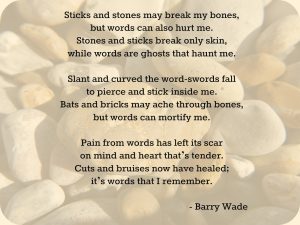 I was happily preparing dinner the other day and I could hear my three children chattering away in the hall. Pretty soon the talking turned to bleeting, yes bleeting… and baaing, like a sheep. I could hear my 12-year-old son, JJ, say, “everyone is doing it at school.”
I was happily preparing dinner the other day and I could hear my three children chattering away in the hall. Pretty soon the talking turned to bleeting, yes bleeting… and baaing, like a sheep. I could hear my 12-year-old son, JJ, say, “everyone is doing it at school.”
With my parenting radar on alert I popped my head out of the kitchen to ask what they were talking about and JJ explained to me that there is a teacher at school who looks like a sheep and all the students baa at her.
I was pretty horrified at this and I asked what ‘Miss’ (as they call their female teachers) said about their behaviour. JJ told me it was all done behind her back but she was a ‘good laugh’ and he couldn’t imagine she would mind. This of course was one of those moments that led to me abandoning dinner and sitting all three children down for a chat.
If I can help it, I don’t want any child of mine becoming a bully.
You might think I over reacted and that all children get involved in silly things, harmless teasing some might say. Character forming I’ve heard it called before and we’ve all heard the old rhyme ‘sticks and stones may break my bones but names will never hurt me’ but it is not true, names really can harm a person, especially a vulnerable one.
I know this first hand, I was called many names as a young child, most of them revolving around my weight and being just a little (and it really only was a little back then) bigger than the average girl but the main reason I know about the hurt and pain that continues for many years long after the name calling stops is because I was a name caller and I really hurt someone else.
I still feel the shame when I write that, I don’t think the regret for the damage I did to a little boy called Simon (name changed for obvious reasons) will ever leave me. I first wrote about having been a bully as a child back in 2010 and it was so important to face up to the past and really acknowledge what I did. I had no idea at the time that what I was doing could be so destructive, as far as I was concerned I was just a little girl desperate to fit in with the gang and going along with everyone else.
But when your whole class cross their arms and mutter ‘fleas, injected for all my life’ each time you come near them, it is a big deal. I don’t recall Simon ever letting on at school just how much this hurt him but I do think he spent a lot of time on his own. The sad thing is that I don’t really remember that much about the whole situation to be honest, as it was inconsequential to me but of course not to him, not when it was damaging his self-esteem each and every day.
That damage went on for a very long time too. I know this as when I was 28 (quite some years ago now) I was contacted by Simon through Friends Reunited and then Facebook. He asked me about our time at school (primary school, ages 7-10) and why certain things had happened and did I remember…. I had to honestly say ‘No. No, I do not remember most of it’. I think it was therapeutic for Simon to be in touch with a few of his bullies and to be able to finally get a heartfelt sorry from us.
I praise the Lord that he told me he had found a good partner and was at last finding some peace and happiness after years of counselling. He talked about his early upbringing with a stern father in the military and a mother who was never mentally present. Moving areas and schools every two or three years of his life had been tough and a bunch of middle-class kids made it worse and made him doubt himself.
As I quite seriously told my own children this story a couple of weeks ago I had a lump in my throat and I had to fight to stop the tears forming. They were pretty shocked and I really hope they understood what I was saying about how something that seems harmless and just a case of simple teasing can turn out to be life-damaging for some children or even adults.
From the 16th – 20th November, it is anti-bullying week here in the UK but I’d encourage you, wherever you live, to please have a chat with your children about bullying and help them to understand that the line between harmless fun and detrimental behaviour is very fine. Best to just never get close to it and to adopt a positive attitude towards all people, whether they are easy to be around or not.
Have you ever been involved with bullying, either on the receiving or doling out side? What impact has it had on you?

Michelle’s tales of everyday life and imperfect parenting of a 13-year-old boy and 9-year-old twin girls and her positive Christian outlook on life have made her name known in the UK parenting blogosphere. Her blog, Mummy from the Heart, has struck a chord with and is read by thousands of women across the world.
Michelle loves life and enjoys keeping it simple. Time with her family, friends and God are what make her happiest, along with a spot of blogging and tweeting, too! Michelle readily left behind the corporate arena but draws on her 25 years of career experience from the fields of hotel, recruitment and HR management in her current voluntary roles at a school, Christian conference centre, night shelter and food bank.
As a ONE ambassador, in 2012 Michelle was selected to travel on a delegation to Ethiopia with the organisation to report on global poverty and health. Then in 2014 she was invited to Washington, DC, where she attended the AYA Summit for girls and women worldwide. When asked about her ambassadorship with the ONE Campaign, she stated, "I feel humbled to be able to act as an advocate and campaigner for those living in poverty."
More Posts - Website
Follow Me:






by Meredith (USA) | Sep 1, 2015 | 2015, Advice, Awareness, Being Considerate, Caring, Communication, Family, Happiness, Husband, Kids, Life Balance, Life Lesson, Motherhood, Priorities, Relationships, USA, World Motherhood
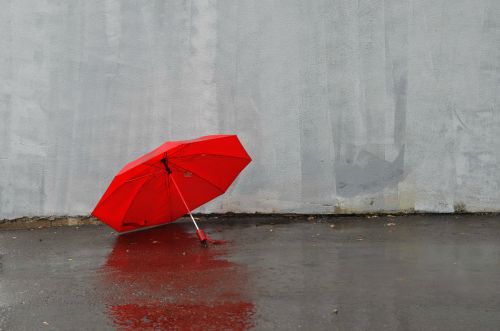
It happened very slowly. It started when my children were small and needed so much attention. They consumed most of my day and by the end of those early days, I was completely spent. I could barely hold my eyes open to read a book before bed let alone hold a conversation with another adult.
Then he started traveling for business and would be gone for two or three weeks at a time. It was scary being alone with my two small children, but it also helped me learn that I could do many things on my own. I learned how to manage the house, fix things and take care of my children while my husband was away.
As the kids grew from babies to toddlers and then started elementary school, I volunteered to help with many of their activities: Scouts, church class, school plays, charity events. My days are consumed with getting my kids ready for school, fulfilling my volunteer obligations, helping with and checking homework, running the kids to their different after school activities, cooking dinner and getting them to bed at a decent time. At the end of the day, I still feel completely spent. That is how my life has gone on for the last few years. I thought I was doing a great job with everything… (more…)
Meredith finds it difficult to tell anyone where she is from exactly! She grew up in several states, but mainly Illinois. She has a Bachelor of Science degree in Elementary Education from the University of Illinois at Champaign/Urbana which is also where she met her husband. She taught kindergarten for seven years before she adopted her son from Guatemala and then gave birth to her daughter two years leter. She moved to Lagos, Nigeria with her husband and two children in July 2009 for her husband's work. She and her family moved back to the U.S.this summer(August 2012) and are adjusting to life back in the U.S. You can read more about her life in Lagos and her adjustment to being back on her blog: We Found Happiness.
More Posts

by Kyla P'an (Portugal) | Jun 25, 2015 | 2015, Awareness, Being Considerate, Child Care, Education, Girls, Helping, Life, Life Lesson, Motherhood, Parenting, Responsibility, USA, World Motherhood
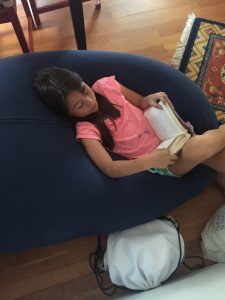 Last week I took my daughter to a local book store to spend a gift card she received for her birthday. My daughter loves books and had a hard time deciding what she wanted most, to purchase the final books in one of her existing collections or get something totally new.
Last week I took my daughter to a local book store to spend a gift card she received for her birthday. My daughter loves books and had a hard time deciding what she wanted most, to purchase the final books in one of her existing collections or get something totally new.
While I was in a different section, my daughter engaged the children’s department manager in a book discussion. Evidently sharing with the woman all of her latest good-reads, which included much of the Percy Jackson series by Rick Riordan, all of the Harry Potters, and several non-fictions like I Am Malala and A Long Walk to Water.
When I arrived back on the scene, the woman commended me for raising such a voracious reader and said she was amazed that my daughter went to public school, being convinced that only private schools could produce such a 3rd grade equivalent.
I didn’t know if I should be flattered or offended.
The woman, who was in her late 50’s, was a retired educator herself and clearly had a deep passion for books and strong opinions about appropriate reading levels. She impressed upon me that many of my daughter’s book choices were advanced for her age and encouraged me to consider steering her away from further indulgences.
This sentiment concerned me because, until recently, I had kept close tabs on what my children were reading and most of the advanced books were ones we read together. But lately, my daughter had been zooming ahead of me, finding pockets of reading time at school and also before lights out at night.
Admitedly, I hadn’t read any of the Percy Jackson books. Knowing that the books had been made in to PG-13 movies did have me somewhat concerned about content but was I really hearing this book specialist right? Was she really trying to stymie my child’s enthusiasm for reading by directing her choices?
The woman was trying to point out that my daughter is only a third grader once and there were plenty of sweet, age-appropriate books out there for her to indulge in. Didn’t I want to save these 6th, 7th and 8th grade books for later?
I really had to think about this.
After all aren’t I always trying to slow my daughter’s maturity? Aren’t I the same mother that won’t let her watch teen television shows because they’re too sassy and full of content ahead of her age? Could books be presenting the same issue?
I’ve grappled with this for the better part of 7 days now. What are the demigods in Percy Jackson doing up there at Camp Half Blood? Aside from the reality of Malala Yousafzai getting shot point blank by the Taliban, what fictional characters might be playing out scandalous scenes in my daughter’s young mind from The Secret Benedict Society?
Does it make me a less engaged parent if I don’t keep my finger on the pulse of my childrens’ literary lives? Do I need to give up my own sacred reading time to be sure I’m on topic with my kids?
A writer friend of mine told me once that the difference between books and movies was that movies spoon feed us all of the images and visuals in a story whereas books let our imaginations fill in the scenery.
When kids read books with ideas or content beyond their experience levels, their minds fill in the pictures age appropriately.
I saw this first hand when My daughter read Harry Potter and the Sorcerer’s Stone in first grade without having bad dreams but when she saw the movie in second grade, she had nightmares about the final images of Voldemort for months.
I love my daughter passion for reading and I’m proud of her advanced and eclectic book selections but now there’s a little nagging voice whispering in my ear every time she picks up a new and unfamiliar novel.
And in the end, instead of helping us find a few new, good books, I think the well-intentioned saleswoman may have done more harm than good.
Where do you stand with letting your children read ahead of their age level? Do you think this saleswoman had a point?
This is an original post for World Moms Blog from our senior editor and mom to two, Kyla P’an.
The image used in this post is credited to the author.
Kyla was born in suburban Philadelphia but spent most of her time growing up in New England. She took her first big, solo-trip at age 14, when she traveled to visit a friend on a small Greek island. Since then, travels have included: three months on the European rails, three years studying and working in Japan, and nine months taking the slow route back from Japan to the US when she was done. In addition to her work as Managing Editor of World Moms Network, Kyla is a freelance writer, copy editor, recovering triathlete and occasional blogger. Until recently, she and her husband resided outside of Boston, Massachusetts, where they were raising two spunky kids, two frisky cats, a snail, a fish and a snake. They now live outside of Lisbon, Portugal with two spunky teens and three frisky cats. You can read more about Kyla’s outlook on the world and parenting on her personal blogs, Growing Muses And Muses Where We Go
More Posts - Website
Follow Me:






















